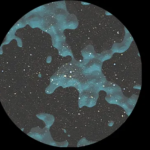October 22, 2014 – Guest blogger, Susan Finch, seen in the picture below, writes about how homes are changing in the age of the Internet of Things. Susan is a freelance writer with a passion for travel. She writes about small businesses finding their online voice through content marketing, blogging and social media. She has been a contributing author for guidebooks, has published articles in magazines both physical and electronic and can be reached through her website at BySusanFinch.com.
In the past I have written about a number of smart devices that are altering our daily existence. This contribution places them within the context of the home of the future, and a not too distant one at that.
———-
The growth of the U.S. smart home market will grow to $22.4 billion by 2020, according to a report by Markets and Markets. With so much money spent on smart home advancements in just the last few years, it’s mind-boggling to think of what homes will look like in 100 years. Smart homes complete with intelligent appliances and cleaning robots will be the norm instead of the cutting edge. Here’s a look at what’s already happening today and what it might look like a century from now.
Self-Sufficient Homes
Homes have already started to be built on stilts to avoid flooding and can have solar panels on the roof to conduct energy. So, future dwellings will have their own power generation stations complete with wind turbines and geothermal energy to run efficiently by themselves, explains Future Technology 500.
Home owners also will see more robots doing chores like cleaning and organizing, which will make the Roomba look like a primitive toy. Your home will be able to take care of you instead of the other way around. Self-cleaning buildings will break down grime and convert toxins into a harmless nitrate to simply get washed away during the next rainstorm.
Smart Appliances
Smart appliances like Samsung refrigerators that are hooked up to Wi-Fi and ovens that can turn themselves on to preheat your dinner are already being introduced. In the future, refrigerators will tell you how much beef you have left, when the milk goes bad and clean itself without human intervention. Washers and dryers will be able to add their own soap and just the right amount of fabric softener. Hopefully, they will eliminate the expense of a dry cleaner and know how to clean delicate items on their own as well as fold your clothes to be put away.
Smart Dinners
Forget propping up your tablet to read a recipe while cooking. New stoves are already popping up with interactive touchscreen cook-tops for recipes, social media updates and weather. You also won’t need to worry about burning yourself with a cooking surface that uses induction to heat pots, according to The Verge. With these advancements, it’s easy to think that in 100 years, stoves will be able to adjust their own temperature according to how fast or slow the food is cooking, turn itself on and off at the right time and even tell you if the food is safe to eat. Stoves may even be able to figure out how many ingredients you used and add them to an automated grocery list for reorder without you having to do a thing.
Smart Thermostats
In 2014, Google bought Nest, an intelligent smoke detector and thermostat company, for $3.2 billion. Nest can already figure out if your breakfast is burning, and if there’s a fire in your home, it can call for emergency assistance. The system also can alert you if there’s a threat of carbon monoxide poisoning and can turn off your gas on its own. Furthermore, it can adjust your thermostat and you can keep track of what your home is up to from your smartphone.




















